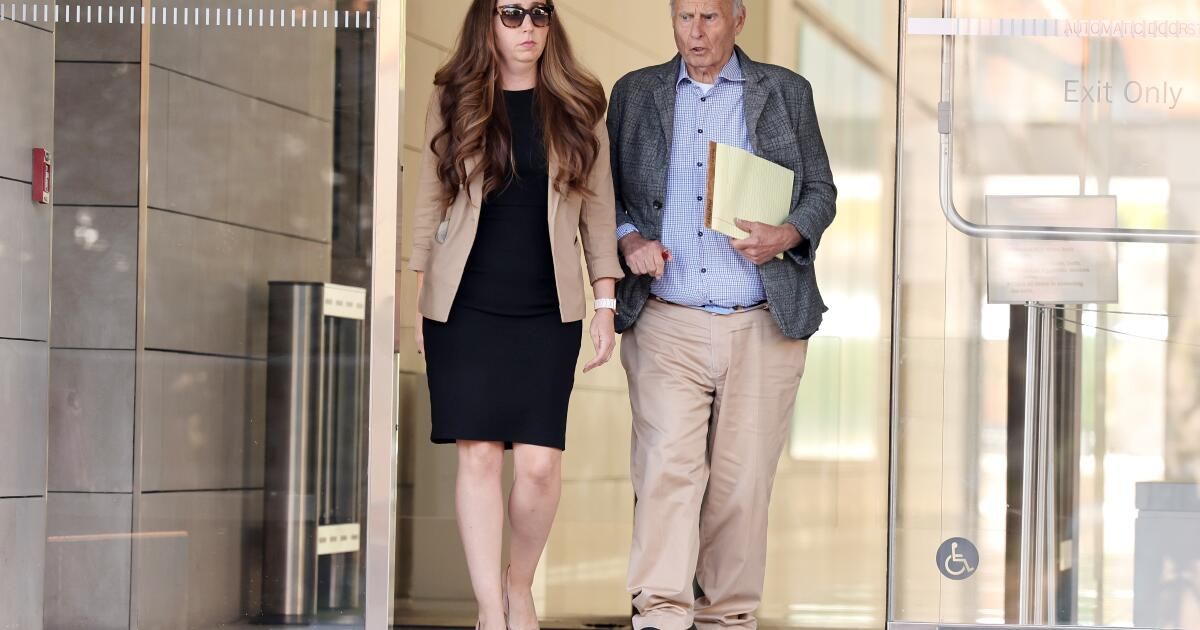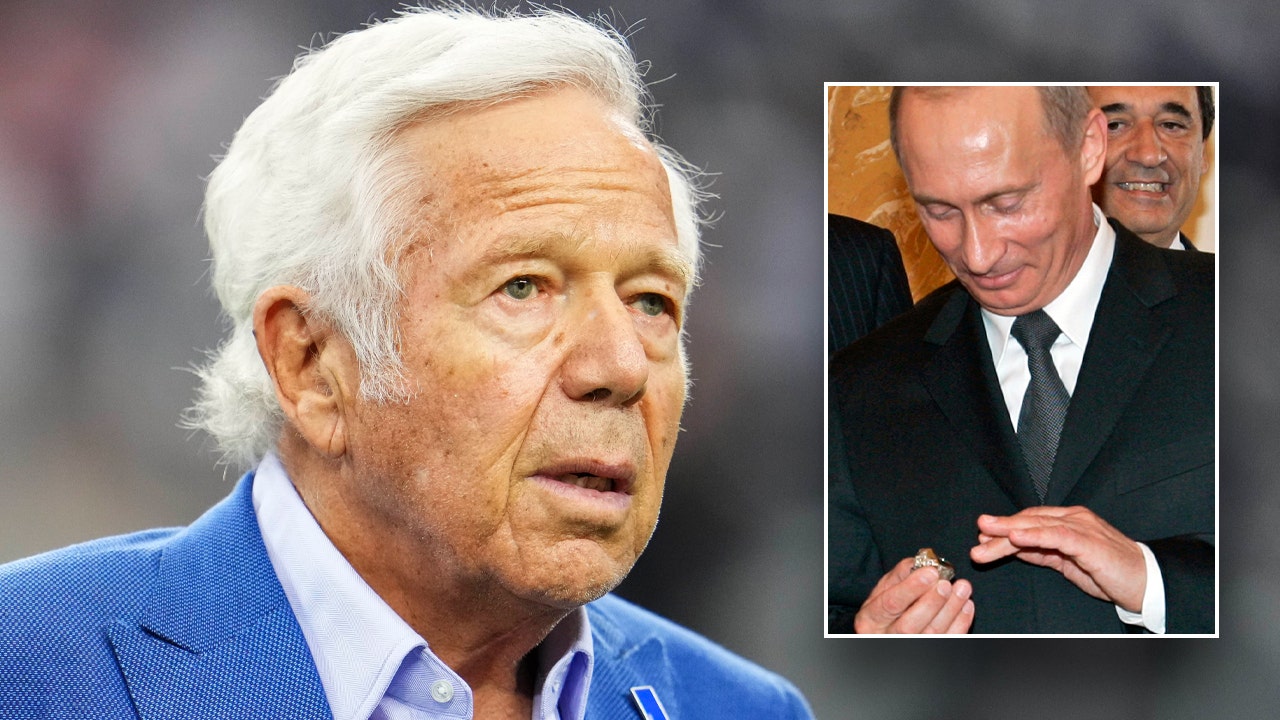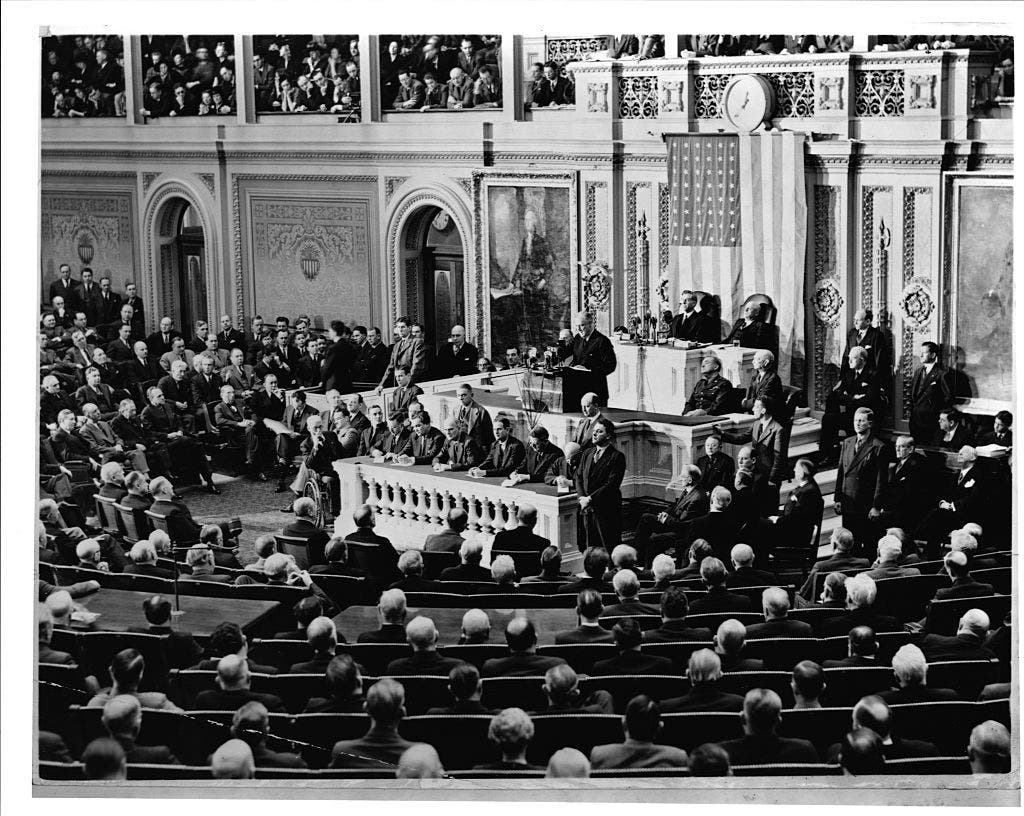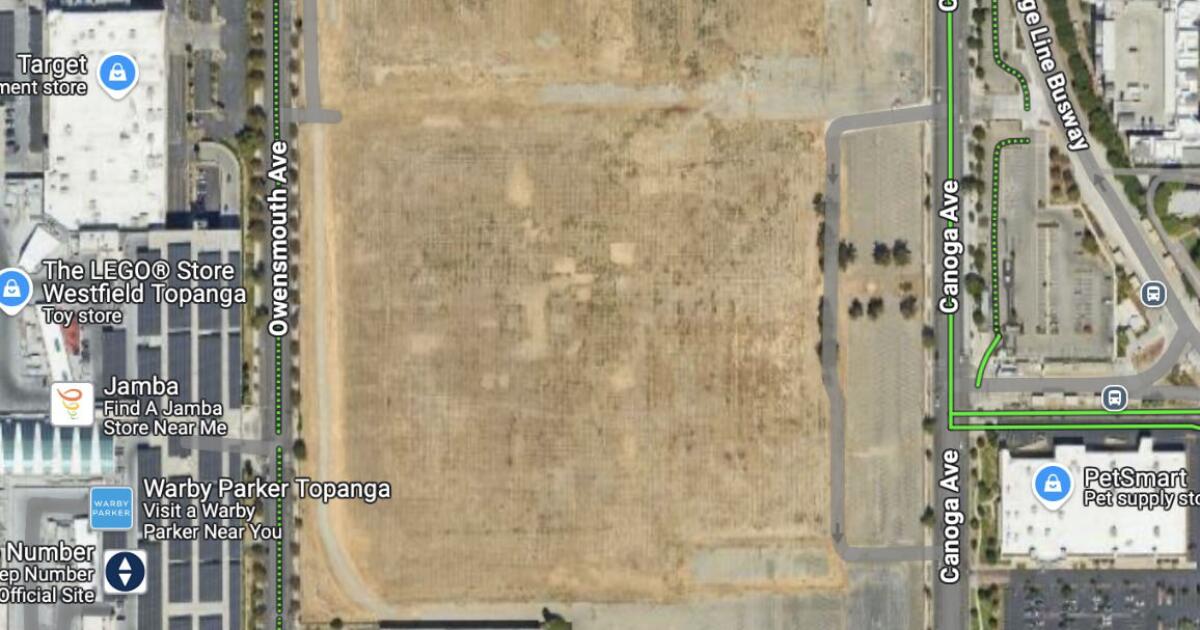A Los Angeles federal court jury on Tuesday found Tom Girardi, a onetime legal giant and now a disgraced ex-lawyer, guilty of wire fraud for leading a years-long scheme that embezzled tens of millions of dollars.
The verdict concluded a 13-day trial in which prosecutors drew emotional testimony from former clients, including a burn victim and a widow whose husband died in a boating accident, employees of the now-closed law firm Girardi Keese and an outside attorney who fought to get a woman her settlement money.
When clients were not paid, prosecutors told jurors, Girardi spent money on private jets, country clubs and the entertainment career of his now-estranged wife, Erika Girardi, a star of “Real Housewives of Beverly Hills.”
Girardi, 85, had been tried on four counts of wire fraud; he was found guilty on all four.
The jury deliberated for about four hours before returning a verdict. Girardi, wearing the same gray jacket he had worn throughout the trial, shifted back and forth in his chair as he waited to hear his fate.
He turned to watch Judge Josephine Staton as she read the verdict, his face impassive. As she recited the final guilty verdict, he rubbed his forehead. He could be sentenced to up to 80 years in prison.
After the process was over, a reporter asked Girardi if he wanted to make any comments. Girardi laughed and said: “No, no.”
Kathleen Ruigomez, the mother of a teenager who was injured in an explosion, sat in the front row of the courtroom. She had testified for the prosecution and cried when the verdict was read.
Federal public defenders and prosecutors in the case declined to comment.
But at a news conference outside the courthouse, federal prosecutor Martin Estrada called Girardi a “disgraced lawyer” who portrayed himself as “a defender of the underprivileged.”
“Mr. Girardi was not a champion of justice; in fact, he was a perpetrator of injustice who victimized his own clients when they were most vulnerable and in greatest need,” Estrada said. “This verdict represents a remarkable fall from grace.”
Sentencing is set for Dec. 6. Girardi will remain free until then. Staton said he does not pose a danger to the community or a flight risk.
Outside the courtroom, juror Miguel Lopez told the Times that the jury believed Girardi was guilty because “all the evidence was there.” He added that jurors relied on that evidence and that “it wasn’t a difficult decision.”
During the trial, Girardi's federal public defenders argued that their client was mentally incompetent, unable to assist his own attorneys (let alone retain short-term memory) and was suffering from progressive cognitive decline.
“Mr. Girardi grew older, sick and lost his mind,” Deputy Public Defender Charles Snyder told jurors Monday.
Snyder argued that Girardi was running the company in name only and called it a “weekend at Bernie's” situation in which the company's partners were “supporting him to keep the party going.”
Prosecutors acknowledged in closing arguments that Girardi appeared to be dealing with cognitive issues in 2020, but urged jurors to think back to 2010, when the scheme began — something that seemed to resonate.
“He has mental problems, but they just started now,” Lopez said of Girardi. “They weren’t there before.”
During the trial, the white-haired Girardi shuffled back and forth in his seat next to his lawyers, his hands shaking. Sometimes, a woman in scrubs guided him, and on one occasion, when the jury was not in the room, Girardi yelled at one of his lawyers who was trying to direct him to the correct seat.
“I know how to sit,” the defendant said.
But it was unclear how out of control Girardi was, as he took notes on a yellow legal pad as prosecution witnesses testified. At times, Girardi appeared to be trying to give instructions to his attorneys, handing one of them a piece of paper he had written on before taking the stand.
The guilty verdict was the latest low point for Girardi, who over his decades-long career cultivated close ties with mayors, governors, senators, judges and Supreme Court justices. A once-legendary plaintiffs’ lawyer, he was revered — and feared — by fellow attorneys for the nine-figure settlements he negotiated and the powerful officials he considered friends.
During Tuesday afternoon's press conference, Estrada acknowledged the influence Girardi had with other lawyers and judges.
“Mr. Girardi was a lawyer who had it all. He was considered one of the best lawyers in the United States, he had one of the largest and most successful law firms in the country,” Estrada said. “He was paid very well for everything he did, but that wasn’t enough for him. He wanted even more. His insatiable appetite for money is what brought him to court and what led to this verdict.”
Girardi's defense attorneys blamed the massive fraud at Girardi Keese on the firm's chief financial officer, Chris Kamon, accusing him of stealing more than $50 million. Kamon is also charged with wire fraud in connection with stealing client money, along with a separate case in which he is accused of embezzling firm funds to finance home purchases and a $20,000-a-month payment to his girlfriend.
“This was Mr. Kamon’s plan,” Snyder said in closing arguments. “This was not at all [Girardi’s] fraud.”
Girardi’s law firm collapsed in late 2020 amid evidence that he had stolen settlements from widows and orphans in an Indonesian plane crash, and hundreds of former clients and suppliers came forward saying they were collectively defrauded out of hundreds of millions of dollars. He was disbarred in July 2022.
During the trial, former clients of the firm told jurors they were impressed by Girardi’s record of success, including the $333 million settlement against Pacific Gas & Electric, featured in the movie “Erin Brockovich.” He promised them everything would be fine and told them not to worry, they said.
“I trusted him too much,” testified Joseph Ruigomez, who suffered catastrophic burns as a teenager in a 2010 San Bruno pipeline explosion that killed his girlfriend.
After Girardi negotiated a $53 million settlement for the family, Ruigomez and his mother detailed the late payments and excuses that piled up. An IRS agent later testified that some of the Ruigomez settlement funds went to compensate other Girardi clients whose settlements he had previously misappropriated.
In voicemails and letters filed in court, Girardi repeated the same refrain to frustrated customers demanding money owed to them: “Don't be mad at me.”
“He singled out these people at the darkest time of their lives and told them what he thought they would believe,” Assistant U.S. Attorney Ali Moghaddas told jurors in closing arguments Monday. “What you saw in this case is that for years, the defendant ran a Ponzi scheme.”
Lopez, the juror, said the most damaging evidence against Girardi was the lies he told his clients. Lopez said the clients’ money was supposed to be in the trust account and that Girardi was using the money for “personal reasons.”
The jury said it felt bad for the victims who testified, including Ruigomez, Josefina Hernandez, who was injured by a medical device and is battling bankruptcy, Judy Selberg, who lost her husband in a boating accident, and Erika Saldana, whose 1-year-old son was left paraplegic after a drunken driver crashed the family car.
Saldana's son later died. Her family never received the $1 million they were owed.
“A lot of people were suffering and he was taking advantage of them,” Lopez said.
During the trial, Girardi's federal public defenders called more than 10 witnesses, including Dr. Helena Chui, who testified that Girardi has dementia; his former housekeeper of about 20 years; and his secretaries at the law firm.
Lopez said the jury believed the doctor prosecutors called to the stand “because he has more information” and Chui “did not have enough information about the case.”
Girardi faces another trial in 2025 in Chicago on charges that he and others at the firm stole payments made by Boeing to families whose loved ones died in a plane crash in Indonesia.
Times staff writer Matt Hamilton contributed to this report.












